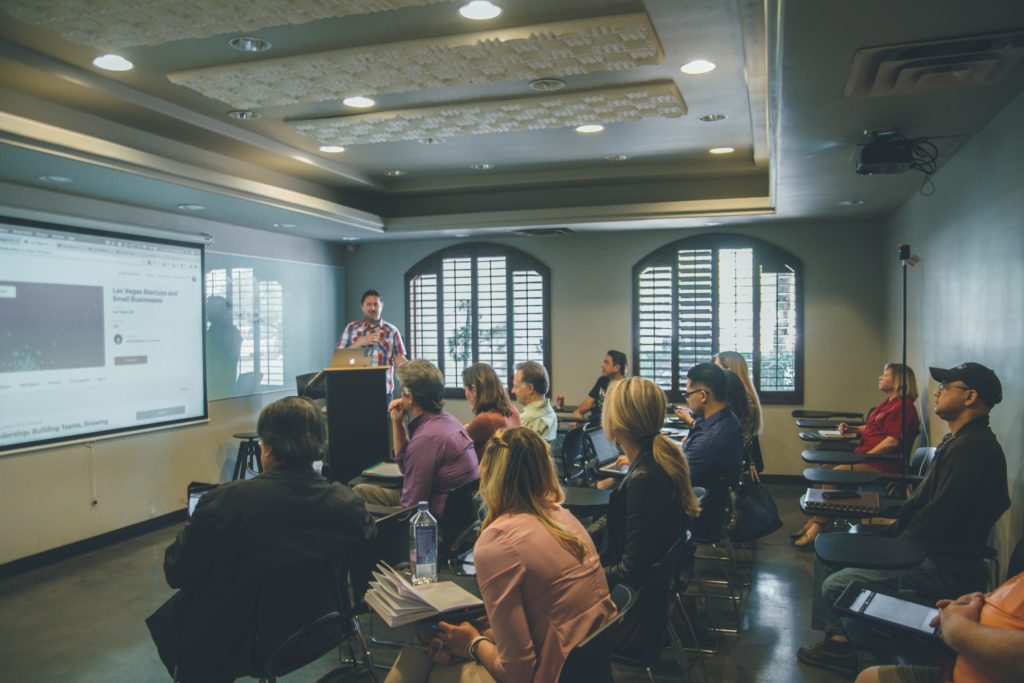What’s The Difference? Lernen And Lehren In German Posted by Constanze on Jul 29, 2020 in Language
Guten Tag! This is the third and final post on the difference between some very closely linked words. These are German words that are either similar in meaning or similar in appearance (or both), which often means they are used incorrectly. This post looks at the words lehren (to teach) and lernen (to learn).
We already know from the previous two posts that lernen means to learn, and lehren means to teach (if you have not read these posts yet, they are here and here).
Sabine lernt Englisch.
Sabine is learning English.
Ludwig lehrt an der Freie Universität Berlin.
Ludwig teaches (lectures) at the Free University of Berlin.
Two things might catch you out about the words lernen and lehren- firstly, how similar they look, and secondly, how similar they sound. Considering they are highly likely to be used within the same context (school, university, studying, usw (etc).), it would be understandable to muddle them up from time to time. I have recorded some short audio clips to help you with the pronunciation of these words.
Here is the pronunciation of the word lernen (to learn):
“LEHR-nehn”
Here is the pronunciation of the word lehren (to teach):
“LEHR-en”
Now, listen to the example sentences from above, to hear the verbs used in a sentence:
Sabine lernt Englisch (Sabine is learning English):
Ludwig lehrt an der Freie Universität Berlin (Ludwig teaches at the Free University of Berlin):
*
Hopefully that helped! Now, to get used to reading the two words and recognising their meanings, here are several, other German words that either contain the words lehren or lernen:
Related to teaching (lehren):
der Lehrer – the teacher (male)
die Lehrerin – the teacher (female)
die Lehre – the teachings/the doctrine
der Lehrling – the apprentice
die Lehrstunde – the lesson/class (die Stunde means ‘hour’)
Related to learning (lernen):
die Lernzeit – learning/study time
die Lernprobleme – learning problems
verlernen – to unlearn/forget
And that concludes this mini-series on closely linked words! I hope, if this confused you before, that you now have some clarity on how and when the words lernen, lehren, studieren and unterrichten are used. 🙂 Are there are any other word combinations that trip you up when you’re learning German? Drop me a comment below and I’ll either point you in the direction of a post that explains them, or I’ll write a new one about them!
Bis bald! (See you soon!)
Constanze
Previous posts:

Build vocabulary, practice pronunciation, and more with Transparent Language Online. Available anytime, anywhere, on any device.






Comments:
Elgin:
Hello Constanze! Thanks for your newsletters, I love them alot and always look forward to the next one 🙂
I spent a couple of months in Germany some years ago and learnt some German. When friends ask me why I could speak German, how do I say “I learnt to speak German some time back”, or “I took German classes few years ago”? They’re in past tense, and I can’t figure out what it is in German. Thanks for your help!
Constanze:
@Elgin Hi, Elgin! Glad you like the posts and that they’re of use to you! As for your question, you could say “Ich habe Deutsch gelernt” (“I learnt German”) or “Ich habe einen Deutschkurs gemacht” (“I did a German course”). There are several blog posts in the archives that talk about the past tense. You can access them by clicking here and searching through them for what you need: https://blogs.transparent.com/german/?s=past+tense&submit=Submit+Search (If that doesn’t work, type in ‘past tense’ on the search bar). I hope that helps! 🙂